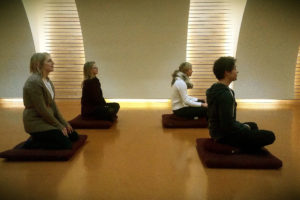Veterans who served in Iraq and Afghanistan are encouraged to participate in a wellness study to help scientists discover new evidence-based strategies for returning service members adjusting to life after combat.
The Center for Healthy Minds at the University of Wisconsin–Madison Waisman Center is offering free complementary and alternative programs to veterans as part of a pioneering research study that is evaluating the effectiveness of these types of programs. The study’s findings could lead to a new model of care for those with Post-Traumatic Stress Disorder (PTSD).
Hundreds of thousands of veterans returning from Iraq and Afghanistan suffer from PTSD, which may be the reason behind alarming increases in suicidal behavior that group. Despite advances in psychotherapies and psychopharmacological approaches, conventional treatments are successful for only 50 percent of those treated.
“There is an urgent need to find new, effective strategies for the many veterans who do not respond to conventional treatment,” says Jack Nitschke, associate professor of psychiatry and psychology, who is principal investigator of the study with Richard J. Davidson, Vilas Professor of Psychology and Psychiatry and founder and chair of the Center.
Complementary and alternative programs are cost-effective, free of side effects and often empowering because veterans can practice the techniques on their own, rather than depend on a clinician. Participants in the pilot phase of the study reported improved sleep, a reduction in chronic pain and an increased sense of optimism, among other benefits.






